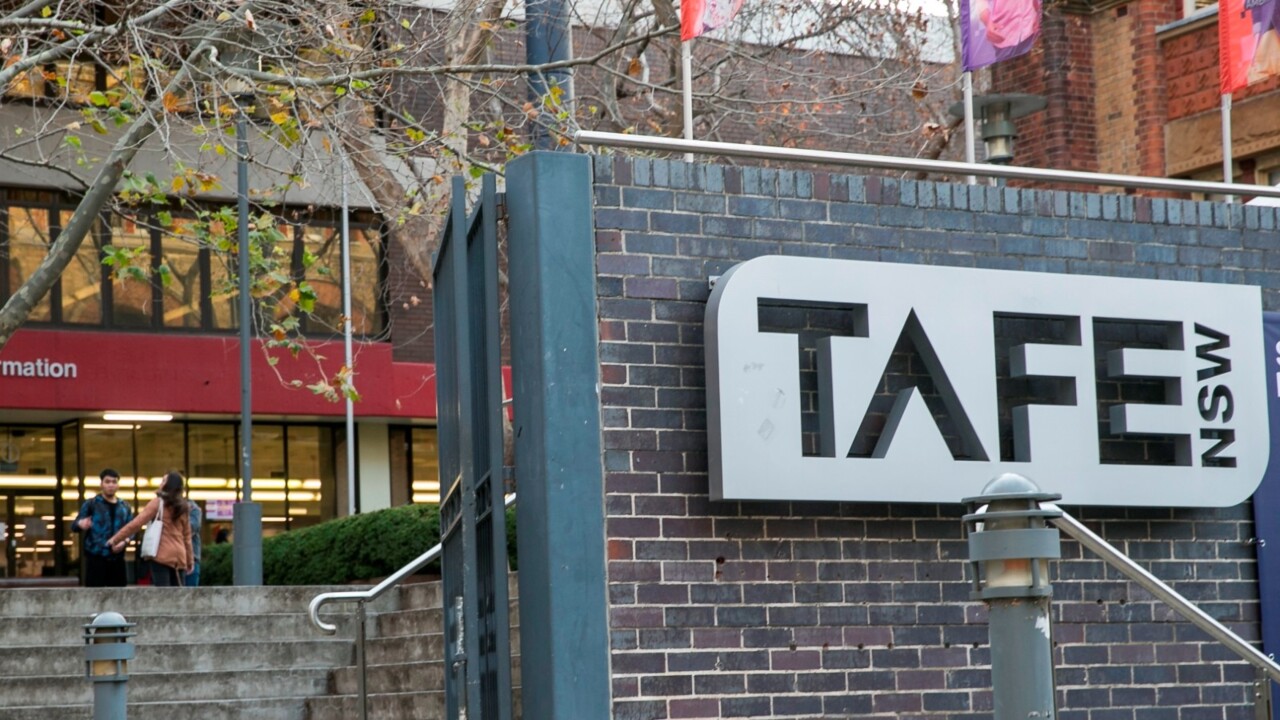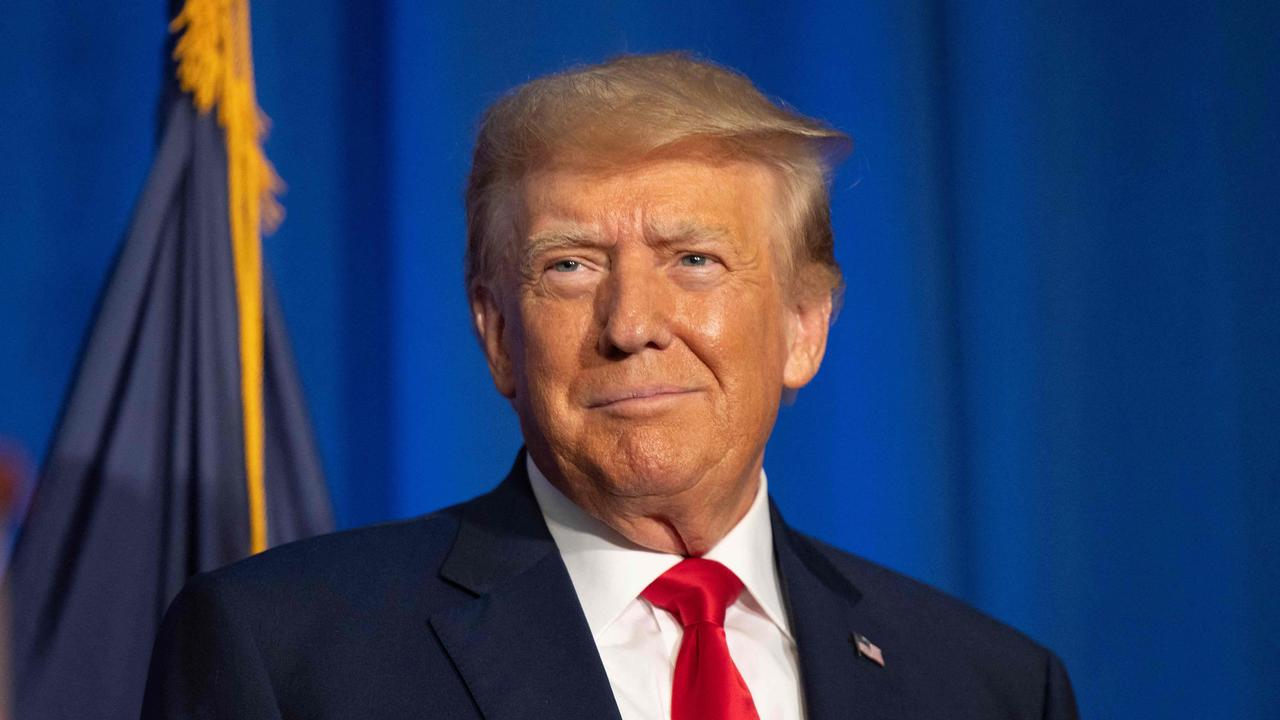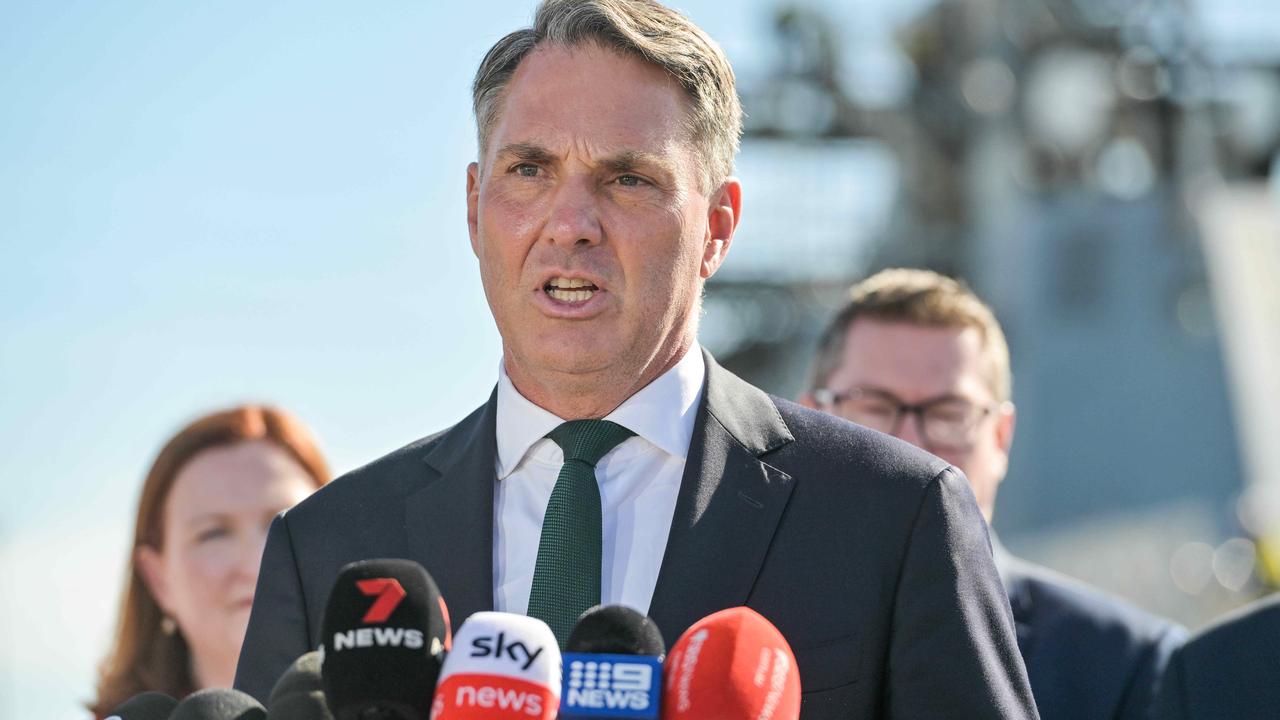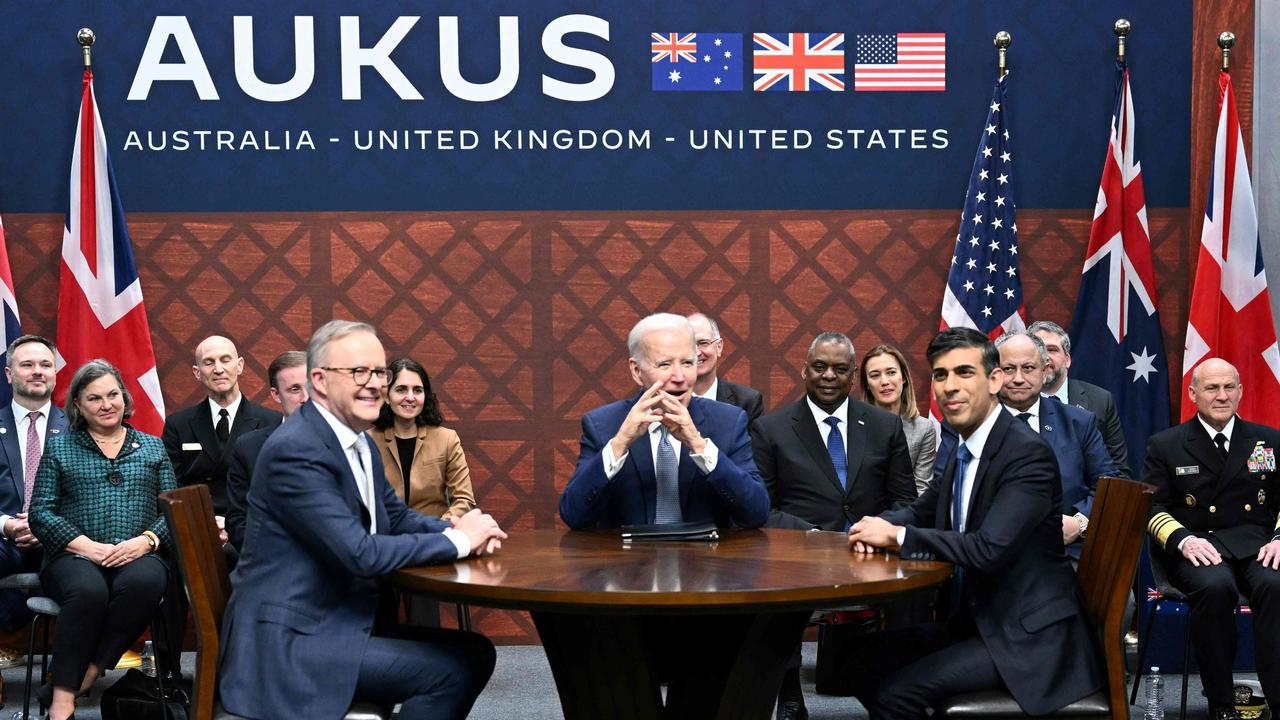Donald Trump could kill off Australia’s $368 billion AUKUS deal
The former US president has copped some bad press this year. But Aussies could be in for a financial windfall if he is elected again.

Many Aussies reacted with fury when Australia signed the historic AUKUS security pact – complete with an eye-watering price tag of $368 billion – earlier this year.
As the cost of living crisis continues to bite, there were plenty questioning whether it was money well spent.
The multi-decade deal with the US and the UK will see Australia purchase US-manufactured nuclear submarines as well as develop our own, with the aim of countering China’s increasing assertiveness in the Asia- Pacific.
One talkback caller on ABC radio described it as a “heartbreakingly disgusting” amount of money to spend on defence when everyday Australians were struggling.
For those struggling to put food on the table and all those battling to keep their head above water, it is really reassuring that @AlboMP is happy to waste $20b a year on the useless AUKUS sub deal. They can battle through life knowing their Gov is looking after them.
— Charles Harvey (@CJHarvey56) March 12, 2023
Guardian journalist Amy Remeikis also took exception to a phrase by Defence Minister Richard Marles, who called the deal “an investment we cannot afford not to make”.
“Would have thought ending intergenerational poverty and ensuring people have a decent quality of life was also an investment we couldn’t afford not to make and yet somehow, here we are,” she wrote sarcastically on Twitter
Richard Dunley, a naval and diplomatic historian, said the deal “looks best from Washington”, describing the cost as “astronomical”.
Then last week came another whammy, with news AUKUS could be expanded.

White House Indo-Pacific co-ordinator Kurt Campbell, in a talk at the Centre for Strategic and International Studies think tank in Washington, said there were discussions with a “variety” of other countries about potentially involving them in a second phase of an AUKUS agreement, as reported in the ABC.
He said he expected there would be some areas where other allies and partners could also take part.
But for Aussies aghast at the cost of AUKUS, there could be some good news on the horizon if US president Joe Biden loses the presidency when Americans go to the polls in 2024.
Donald Trump is the leading Republican contender in the race to the White House, and during his presidency he was openly sceptical of alliances.
Foreign policy under Mr Trump was often erratic and isolationist as he pursued an “America First” strategy.
He even suggested South Korea and Japan should be taking a stronger role in the Asia Pacific, to counter China’s growing aggressiveness, rather than the US.

On the day of the AUKUS unveiling in San Diego, a reporter rather pointedly asked Richard Marles whether he was concerned about AUKUS under another US president.
“Well I’m not – is the answer to your question,” he said cautiously.
But Mr Marles is on the record having some concerns about the US’ commitment to the Asia-Pacific region.
In his 2021 book Tides That Bind, he described the superpower as “unpredictable”, noting it made “stability in the Asia-Pacific” difficult.
“There is a question mark over the future role of the US both in East Asia and globally,” Mr Marles wrote.
Tom Corben, a research fellow at the US Studies Centre, told news.com.au that AUKUS had already survived leadership transitions in two of the three countries (Australia and the UK) and had “continued apace”.
“That’s an encouraging sign of the staying power of AUKUS,” he said.
“But that said, we haven’t seen AUKUS sail smoothly through a US leadership transition, let alone to a type of leader like Donald Trump.”

He acknowledged that Mr Trump’s actions during his presidency were often “quite unpredictable”, even to “trusted allies like Australia”.
“It is natural there might be some concern in Australia that Mr Trump’s worst foreign policy instincts could place AUKUS at risk,” he said.
“Partly, that is because of the nature of the submarine deal and the fact it relies on the transfer of US technology and US completed submarines to Australia at a point in time where US policymakers are concerned over whether they have enough submarines – completed or in production – to meet American needs in the first place.
“Mr Trump’s ‘America First’ mantra could complicate things for Australia here if applied to AUKUS.”
He also noted the former president was particularly scathing of allies that “didn’t pull their weight” when it came to defence spending, but said the main focus of his ire was Europe, before noting Australia has made ambitious commitments to increase its defence spending since the Trump administration.
“Politically speaking, there are reasons to be optimistic that the submarine deal could continue in the present form, even with Mr Trump potentially back in the White House,” he concluded.
“The last Trump administration generally regarded Australia as a reliable ally that was pulling its own weight, and was therefore an asset to US strategic interests in the region.
“Australia managed to weather the worst instincts of the Trump presidency in our bilateral relationship, and we also managed to advance significant forms of defence co-operation during his presidency.”
Whatever the outcome of the US election next year, work has already started to prepare the Osborne shipyard in South Australia for the massive undertaking of building submarines.
Time will tell whether they will be finished.
carla.mascarenhas@news.com.au






